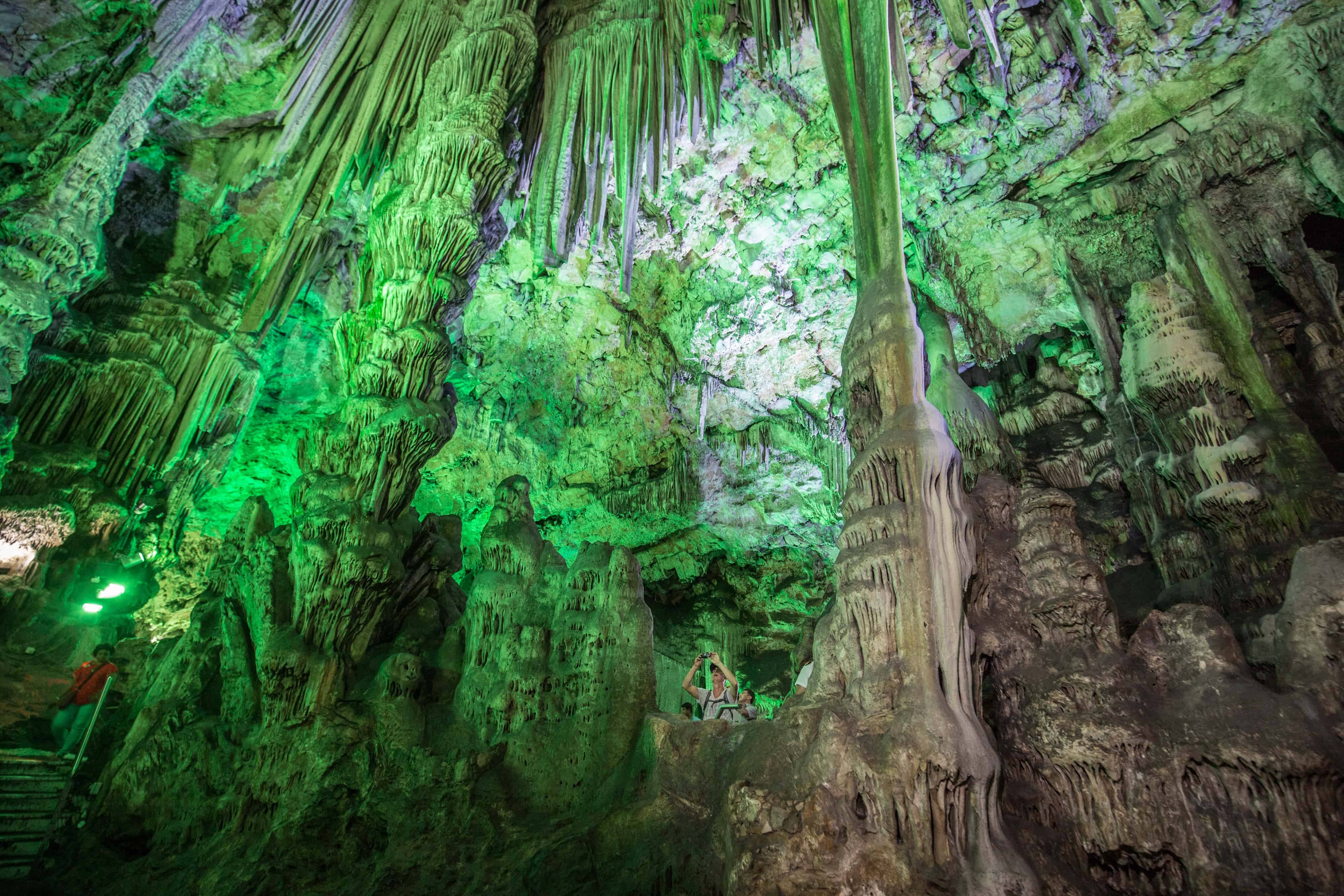SPRINGFIELD, Mo. (AP) — A cancer-causing chemical that leaked from a closed industrial site near the Springfield airport is appearing in the Fantastic Caverns tourist stop.
Litton Systems used the chemical —trichloroethylene (TCE) — to remove grease from metal parts when it manufactured circuit boards near the airport beginning in the 1960s. The chemical has reached some water wells near the airport, The Springfield News-Leader reported . Russ Campbell, owner of Fantastic Caverns, says he’s concerned for the future of the cave and for people living in the area. He says TCE readings so far have posed no threat to cave visitors or employees.
Fantastic Caverns has drilled three vent holes west of the cave so TCE vapors can escape before they reach the main parts of the cave. Fresh air will be pumped into three more holes to help move the contaminated air out of the cave.
“What we’re doing is a Band-Aid fix to intercept the vapors before they get to the cave,” Campbell said. “But that doesn’t do anything for the community.”
The drilling and venting plan has cost Fantastic Caverns $400,000 so far and Campbell said it could cost millions before the work is done. He is negotiating with Northrup Grumman, which bought the Litton site after it closed but the negotiations have hit several obstacles.
“Unless somebody gets really focused and puts an aggressive program in place, I’m 72 years old, I will not see the end of this issue,” Campbell said. “My children are in their 50s. They may not see the end of this issue. My granddaughter, who is 21 years old, may not see the end of this issue.”
The Environmental Protection Agency has classified TCE as a carcinogen and proposed banning the chemical in 2017.
A consultant hired by Fantastic Caverns said he recorded a TCE reading 400 times higher than the EPA’s target limit for human exposure in a deep part of the cave not open to the public.
As far back as 1979, the Missouri Department of Natural Resources found TCE leaking from waste sites at Litton in 1979 and ordered several cleanup and monitoring efforts.
In 1983 Litton agreed to pay $50,000 for violating Missouri’s Hazardous Waste Management Law to settle a lawsuit filed by the state against Litton.
“There is no health threat to our visitors or our employees, but we don’t want it affecting our cave environment,” said Fantastic Caverns spokesman Hubert Heck. “We have Ozark blind cave fish, bristly cave crayfish, a small population of bats and some cave salamanders.”
Fantastic Caverns hired Ozark Underground Laboratory to determine how to block the TCE. The company’s founder, Tom Aley, said the foot-wide holes will reach depths between 63 feet and 90 feet and won’t go through any underground water sources.
“Looking ahead, we can protect the cave and make this work. But nothing is being done to protect people in this 30-square-mile area,” Aley said. “I think we can view Fantastic Caverns as the tip of the TCE iceberg, and nobody knows the extent of the iceberg.”
The Litton plant closed in 2007. Northrup Grumman Corporation Guidance and Electronic Company, Inc. acquired the 70-acre property and has been working with DNR to clean the contaminated site and do more testing to determine how far the TCE contamination has spread.








